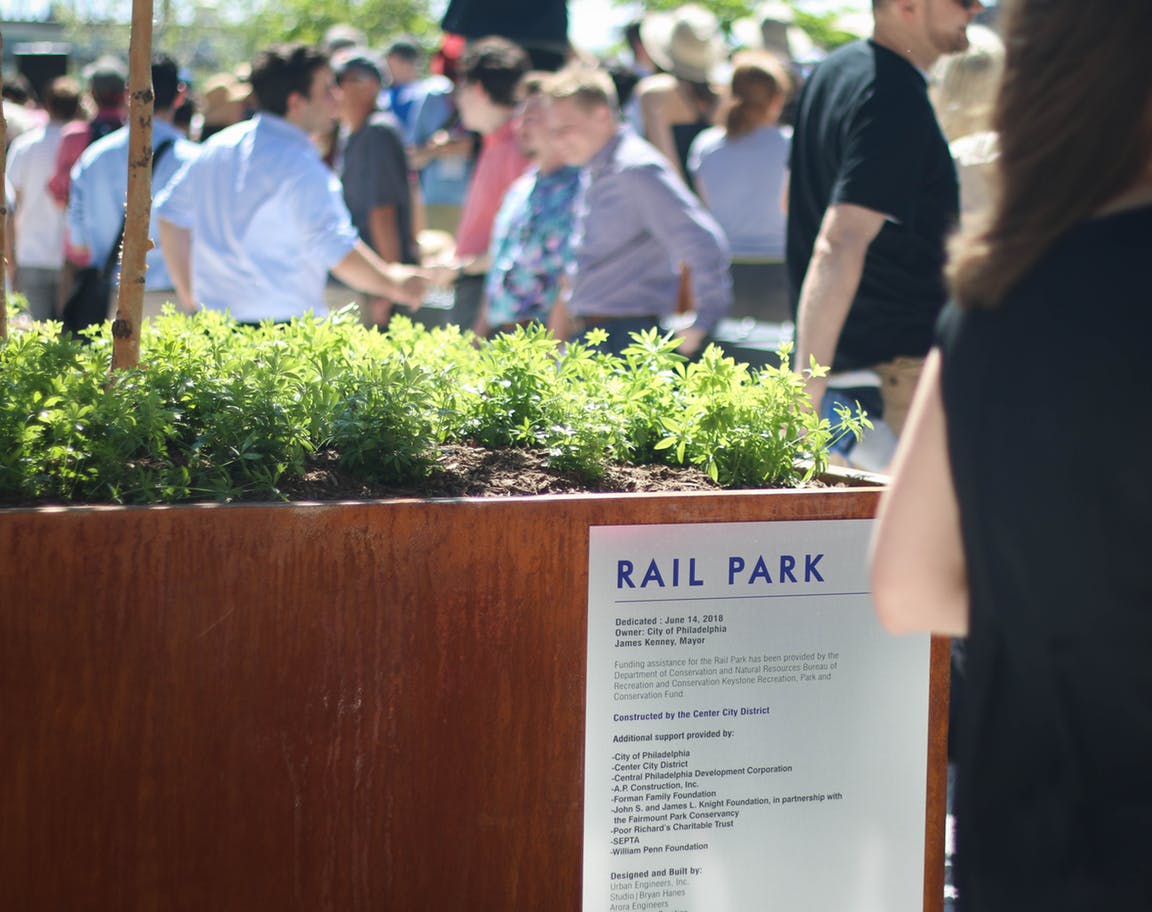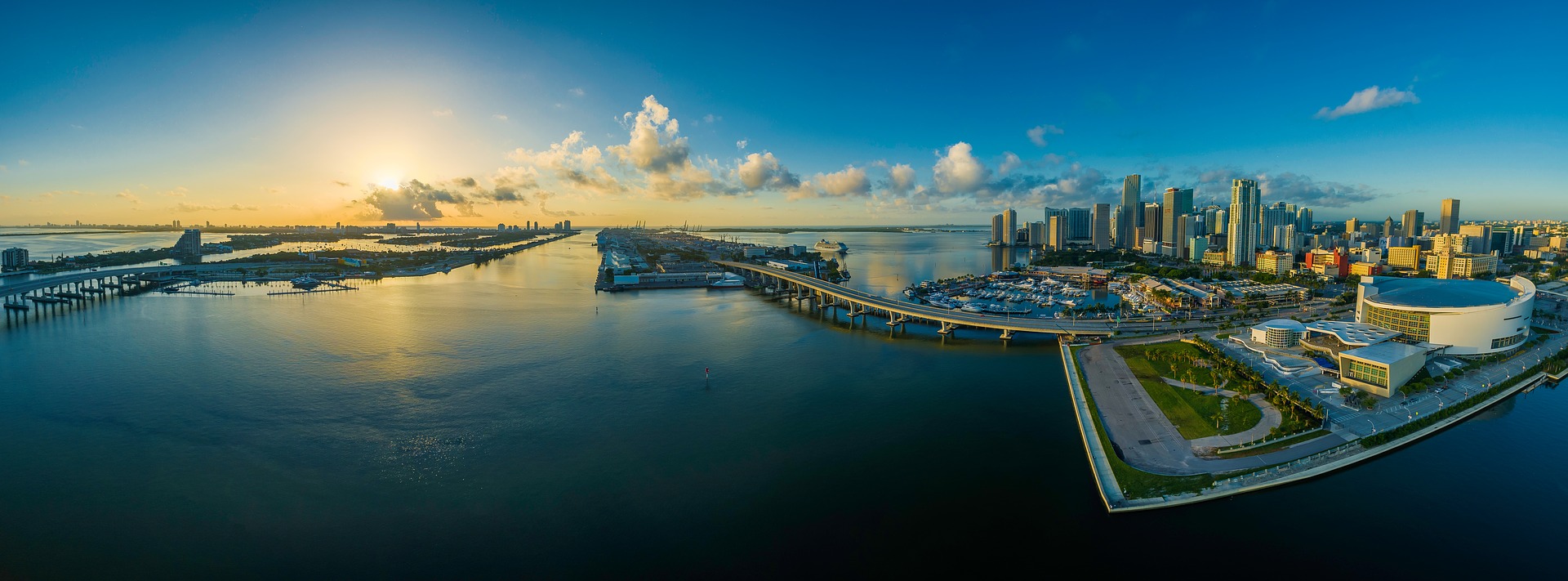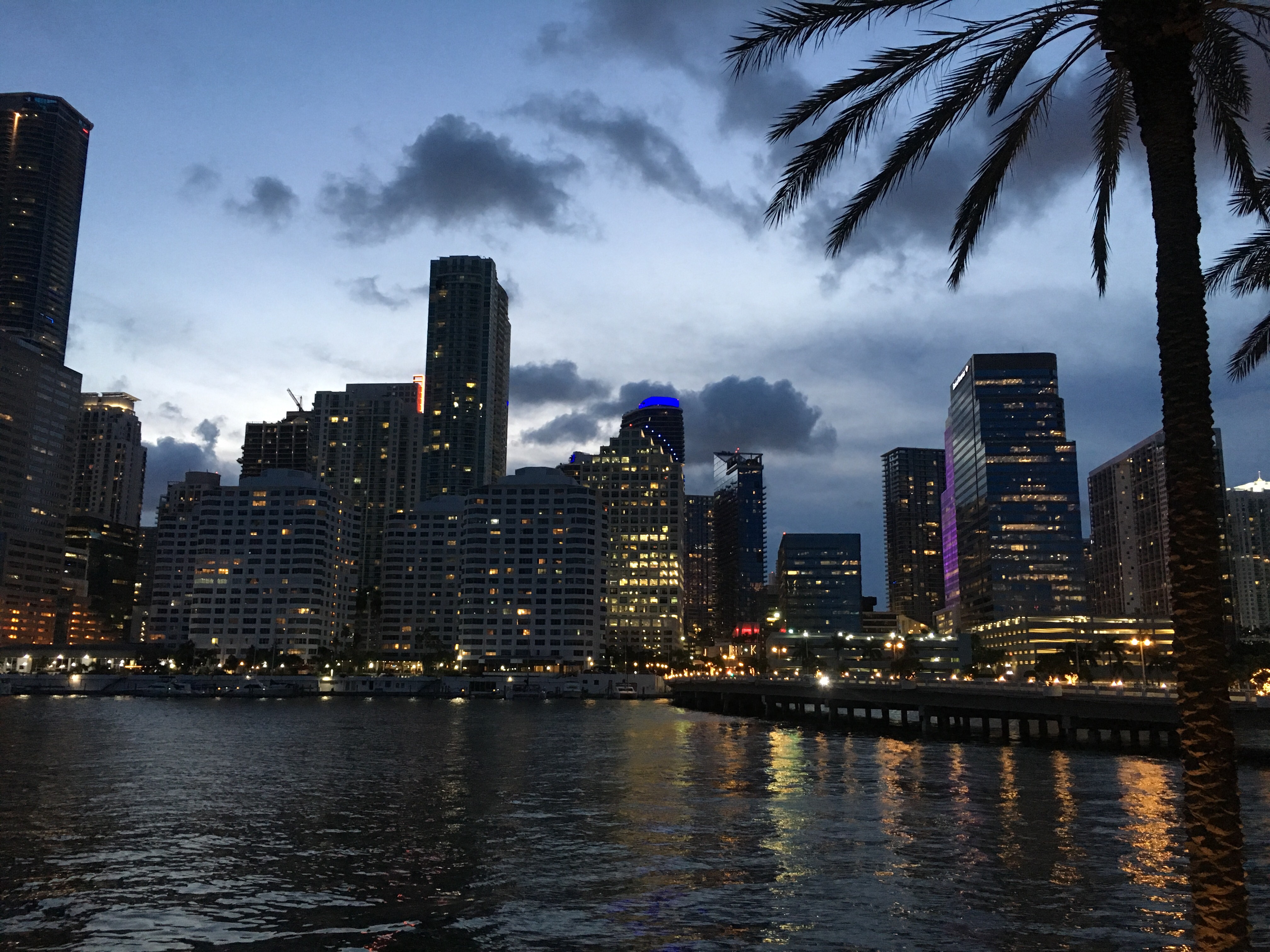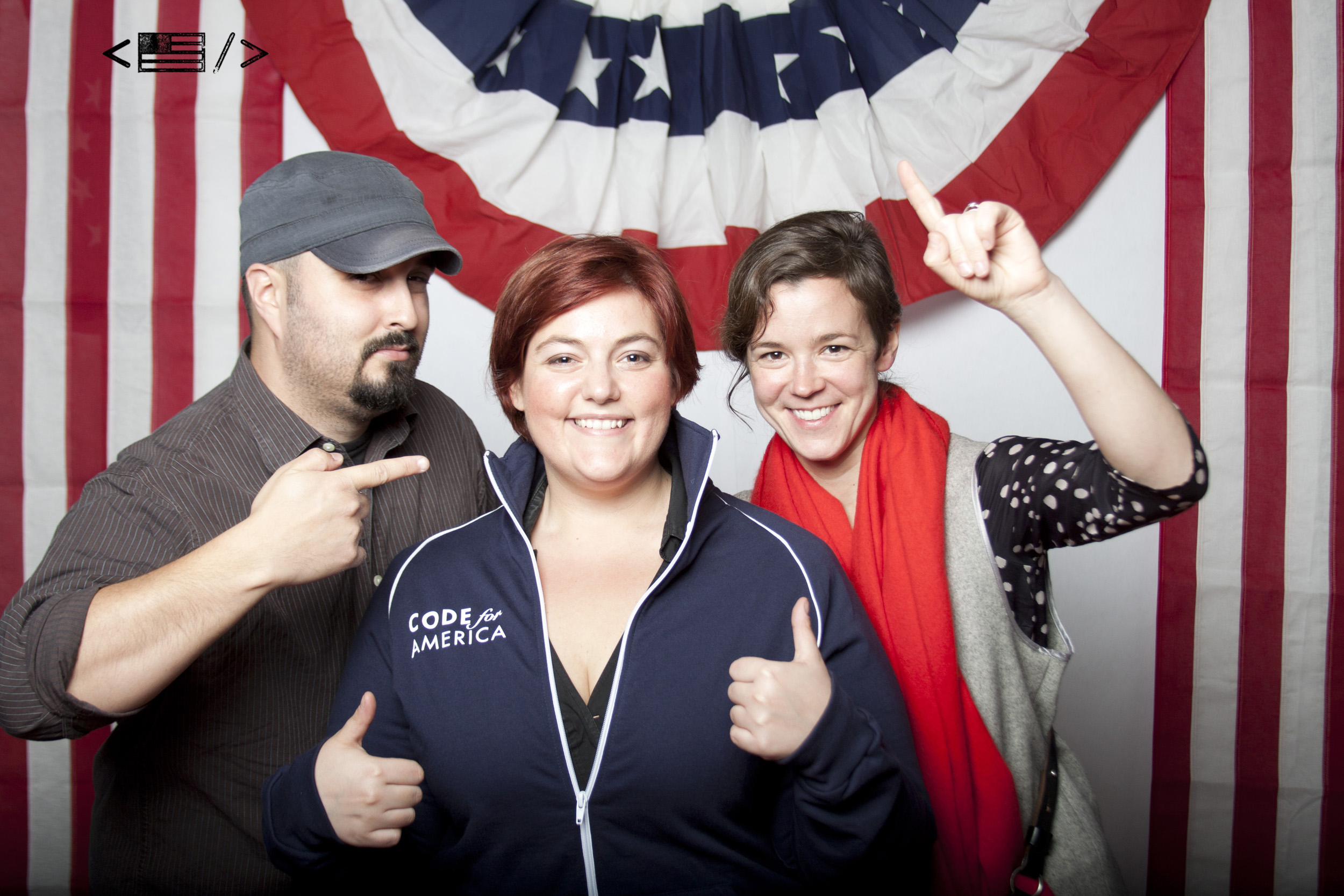To utilize engagement tools, including crowdsourcing and user-centric design thinking, to actively engage San Jose residents in envisioning an autonomous future that creates a more livable city.
Program Area: Community Impact
To engage residents around three mobility pilots, including an automated shuttle route, led by the Detroit Office of Mobility Innovation.
To complete San Jose’s all-ages-and-all-abilities better bikeways network in Downtown San Jose.
To support a public-private collaboration to conduct autonomous vehicle (AV) demonstrations, provide on-demand transit and to explore alternative mobility solutions to inform Miami-Dade County’s future approach to autonomous vehicles.
To enable the Philadelphia Rail Park to host engagement activities, conduct neighborhood planning with residents, raise community awareness and to study the value the park creates.
To support talent development and succession planning for the nonprofit sector in Silicon Valley.
MIAMI — Sept. 21, 2018 — The John S. and James L. Knight Foundation today announced $2 million in funding to Endeavor Miami, the first U.S. affiliate of Endeavor, a global leader in building communities of high-impact entrepreneurs and innovators. Endeavor Miami identifies and supports promising entrepreneurs through educational, mentoring and funding opportunities.
Today’s grant goes directly to the local Miami office on its fifth year in operation. To date, Endeavor Miami has supported 23 active companies and 42 entrepreneurs across industries in South Florida. Endeavor Miami’s entrepreneurs have generated close to $150 million in revenues and 1,800 jobs.
In January 2013, Endeavor Global, a leader in cultivating successful scale-ups, received a $2 million investment from Knight Foundation to launch its first U.S. affiliate in Miami, leading the way for further U.S. expansion in Atlanta; Detroit; Louisville, Ky.; and most recently, Puerto Rico.
The announcement was made at Endeavor Miami’s inaugural ScaleUp Summit, an event celebrating the organization’s five-year progress of promoting high-impact entrepreneurship in South Florida.
“In a short period of time, Miami entrepreneurs have built a connected community of idea makers who are contributing to the city’s growth. The result: Miami is transforming into a hub – not only of tourism, real estate and hemispheric trade – but for innovation and technology. Endeavor has been part of this journey, giving promising entrepreneurs a platform for success on a global scale. With partners like Endeavor, we’ve built momentum and continue to grow,” said Alberto Ibargüen, Knight Foundation president, who announced the investment at Endeavor Miami’s ScaleUP Summit today.
“As we celebrate our milestone of the fifth anniversary, it is really meaningful to count on Knight’s continued support. Knight’s grant will be key to deliver our strategic goals for the next five years to double our portfolio companies, which we expect will translate into three times the revenues and jobs generated by our Endeavor Miami companies in South Florida,” said Laura Maydón, managing director at Endeavor Miami.
To date, Endeavor, a global organization with presence in 32 markets has screened more than 55,000 entrepreneurs and selected more than 1,600 individuals, leading over 1,000 high-growth companies around the world. These high-impact entrepreneurs are selected for their ability to drive innovation, produce role models and drive economic growth and job creation. The selection process is rigorous, as they must obtain a global panel’s unanimous vote.
Following the selection process, Endeavor Entrepreneurs receive:
- Access to mentors and a volunteer advisory board of local business leaders
- Access to institutional investors when they’re looking for capital
- Access to talent and services from partners like EY, Bain and top MBA schools
- Invitations to exclusive educational programs, including executive courses at both Stanford’s Graduate School of Business and Harvard Business School
The success of the Endeavor model has been recognized by numerous global organizations and has been documented in two Harvard Business School case studies.
“The continued commitment from Knight Foundation is a very exciting opportunity for us and the entrepreneurship community,” said Danny Echavarria, Endeavor Miami board co-chair. “It allows us to continue our efforts to help scale companies in Miami, leading to a boost in the economy and an increase in job creation.”
Knight Foundation’s support of Endeavor Miami forms part of its strategy to foster entrepreneurship in South Florida and establish the city as a place where ideas are built and scaled. Since 2012, Knight has made more than 200 investments totaling more than $25 million in entrepreneurship initiatives across Miami.
“Connecting our city with Endeavor’s global network was a natural fit that has led to impressive progress over the last five years. Endeavor entrepreneurs have scaled Miami-made ideas, capitalizing on the city’s assets and helping to fuel development in our innovative ecosystem, while adding to economic growth. We hope to continue to build on these achievements,” said Raul Moas, Knight Foundation program director for Miami.
The new $2 million investment will be distributed over a five-year period and aims to be a catalyzing force for the local entrepreneurial community. The funding will support Endeavor’s efforts to assist six to eight entrepreneurs per year through 2023.
About Endeavor Miami
Endeavor Miami launched in September 2013 with the support of the John S. and James L. Knight Foundation as the first U.S. affiliate of Endeavor Global. To date, Endeavor Miami’s entrepreneurs generated close to $150 million in revenues and 1,800 jobs in South Florida. With the addition of its newest companies, the affiliate currently supports 21 companies and 37 entrepreneurs.
About the John S. and James L. Knight Foundation
Knight Foundation is a national foundation with strong local roots. We invest in journalism, in the arts, and in the success of cities where brothers John S. and James L. Knight once published newspapers. Our goal is to foster informed and engaged communities, which we believe are essential for a healthy democracy. For more, visit kf.org.
Contacts:
Anusha Alikhan, Director of Communications, John S. and James L. Knight Foundation, 305-908-2646, [email protected]
Andrea Torres, Marketing Manager, Endeavor Miami, 305-401-6016, [email protected]
Image (top): Miami cityscape, used under CC0 Creative Commons from Pixabay.
-
Community Impact / Article
-
Community Impact / Press Release
-
Community Impact / Article
To track and share uses of real-time or crowd-sourced data to drive decision-making and place-making in cities.
MIAMI — Sept. 18, 2018 — The John S. and James L. Knight Foundation today announced a five-year, $5,250,000 initiative that brings residents to the center of self-driving vehicle pilot projects happening in five U.S. cities: Detroit; Long Beach, California; Miami; San Jose, California; and Pittsburgh.
The investment is the largest of Knight Foundation’s efforts to develop people-centered Smart Cities, which aims to harness the growth of digital technology to improve how communities respond, connect to and engage with residents.
The pilot projects will be designed to engage local residents around self-driving car deployments to ensure that they reflect community input and meet local needs. Leaders from the five pilot cities will share what they learn and meet regularly to generate insights and lessons for other communities trying to keep up with the increasing pace of testing and deployment of self-driving vehicles.
The initiative comes at a pivotal moment for defining the role of residents in the development and roll out of autonomous vehicles. While there is growing interest and investment in self-driving vehicles — with more than 70 cities deploying pilots worldwide — cities are struggling to fully capture the technology’s long-term impacts. According to a National League of Cities report that assessed the transportation plans of 68 large U.S. cities, only six percent of plans considered how driverless vehicles would affect urban mobility. Now is a key time to bring residents and cities into the conversation.
“Autonomous vehicles are one of the most disruptive technologies of our time, holding significant implications for the way we move, work and interact within communities,” said Lilian Coral, Knight Foundation director for national strategy and technology innovation. “Important conversations are happening among government and industry on what these changes mean for the future, but residents have largely been left from the table. Without their input, we risk designing cities for new kinds of cars, rather than for people.”
The five cities will engage residents on the following pilot projects, all of which involve some form of autonomous vehicles:
- Detroit: To address challenges getting to/from bus stops that connect Detroiters to employment hubs.
- Long Beach, California: To provide residents with more short-distance travel options by better integrating electric or human-powered transit (e.g. bikes, scooters, etc.) and other transportation methods, while reducing greenhouse gas emissions; improving air quality; and creating a safer, healthier, and more sustainable city.
- Miami: To develop driverless, on-demand shuttles as an alternative to buses that drive a fixed route.
- Pittsburgh: To develop sustainably and support neighborhoods by slowing the growth of single-occupant vehicle trips.
- San Jose, California: To better integrate autonomous vehicles with other forms of transit and help improve public life by connecting residents to jobs, and destinations for retail and nightlife, in downtown San Jose.
The participating cities were selected based on their level of readiness, openness to incorporating a resident-centered approach and connection to Knight Foundation. Four of the five participating communities are places where Knight regularly invests and has a physical presence. Pittsburgh was selected to join the cohort as the first American city to allow self-driving Uber vehicles on its streets.
“Knight believes that a true Smart City puts people first,” said Sam Gill, Knight Foundation vice president for communities and impact, and senior adviser to the president. “Self-driving cars have the potential to remake the face of cities. We want to work with city leaders to ensure those changes respond to residents — instead of putting residents at the whims of technology. Further, by involving residents on the front end, cities can facilitate a smoother rollout of new technologies and programs on the back end.”
While each city will develop a tailored strategy to engage its residents, the projects share a common objective: to creatively foster community engagement; to use technology to better understand local needs and preferences; and to establish best practices for other cities looking to innovate.
About the John S. and James L. Knight Foundation
Knight Foundation is a national foundation with strong local roots. We invest in journalism, in the arts, and in the success of cities where brothers John S. and James L. Knight once published newspapers. Our goal is to foster informed and engaged communities, which we believe are essential for a healthy democracy. For more, visit kf.org.
Contact:
Anusha Alikhan, Director of Communications, John S. and James L. Knight Foundation, 305-908-2646, [email protected]
Image (top): Photo from autonomous vehicle exhibit at San Jose’s Computer History Museum. Credit: Justin Cook
-
Community Impact / Article
-
Community Impact / Press Release
-
Community Impact / Article
To support an international competition to design an iconic landmark in downtown San Jose.
MIAMI – Sept. 16, 2018 – The John S. and James L. Knight Foundation today announced $19 million in funding to organizations focused on building a more informed and engaged Philadelphia by advancing quality journalism, fostering the arts and creating public spaces where people can meet and connect.
“Strong communities move with the times — creating new ways to engage citizens and connect people to place. There is no secret sauce. But our research and experience show that providing people with the information they need to make good decisions, spaces where they can gather and feel ownership, and art that inspires and meets people where and how they live, are key elements of sustainable engagement,” said Alberto Ibargüen, Knight Foundation president.
The organizations receiving support include:
- The Lenfest Institute for Journalism ($10 million): Knight will match a $10 million contribution from the Lenfest Institute to create a Philadelphia-based local news accelerator that will help strengthen local journalism in Philadelphia and around the country. The joint $20 million fund will provide a national leadership programs and shared technology resources hub, supporting local news sustainability, journalistic excellence and community engagement. The fund will include dedicated resources for the Philadelphia news ecosystem. This initiative will position Philadelphia as a testing ground for journalism innovation by supporting new business models and new digital acumen throughout the Philadelphia news marketplace. New grant programs will also focus on serving the information needs of diverse communities and the region’s multi-cultural news media.
- Penn’s Landing ($4 million): Support will help propel citizen engagement in the design and maintenance of a new, flagship 11-acre public space on top of I-95 that will reconnect residents to the waterfront. Led by Delaware River Waterfront Corporation, the development of this new space will include a citywide engagement process, enabling residents to shape the project at every stage and to build a place for all Philadelphians. Learning exchanges locally and nationally will help foster and sustain resident involvement. The effort is supported by a host of public and philanthropic partners. This standout public space will serve as a new destination for residents and visitors to connect, while fostering vibrant activity along the river.

In addition, Knight has established the $5 million Philadelphia Art and Technology Fund. The fund is part of its arts and technology initiative, which aims to help institutions develop and implement strong digital strategies that take advantage of technological advances to meaningfully engage visitors in the art — both on and off-site. As audiences increasingly demand personalized, interactive and shareable experiences, the initiative recognizes the opportunity technology presents to engage audiences, encouraging institutions to take risks, adapt new approaches and share what they have learned.
Support will be split equally between two local museums that have made the integration of technology a key component of their institutional missions. Funding will help propel their innovation efforts. They include:
- The Barnes Foundation: The Barnes will create a digital engagement center that will work collaboratively across its museum departments — curatorial, education, web, public programs — to engage visitors in high-quality art. Examples of projects already under way include: a collections database searchable by visual criteria; a custom mobile-ticketing system that includes an audience survey; and a GPS-enabled gallery touring tool. It will further create new partnerships with community-based organizations to connect with audiences outside of museum walls. Tech tools developed at the center will be open-source and the museum will work to share learning with the field.
- Philadelphia Museum of Art: The museum will use technology to enhance how visitors experience its physical space, as well as its collection — in the galleries and online. It will advance its digital roadmap and develop new online, mobile, in-gallery and personalized experiences. Support will allow the institution to create new audience-centered digital resources such as its award-winning A is for Art Museum app for kids, to transform its website to provide richer and deeper content, and to develop groundbreaking digital-born publications. Programs like the annual “Hacking is Art” hackathon will engage a broad creative-class community, expanding access to its collection resources and encouraging innovative uses of its digital assets.
The support was announced today at a community dinner for foundation partners, local grantees, staff and trustees, held at the Philadelphia Museum of Art.
Funding for these projects is part of Knight Foundation’s efforts to foster more informed and engaged communities, as essential to a healthy democracy. Since 2005, Knight Foundation has invested more than $80 million in Philadelphia.
About the John S. and James L. Knight Foundation
Knight Foundation is a national foundation with strong local roots. We invest in journalism, in the arts, and in the success of cities where brothers John S. and James L. Knight once published newspapers. Our goal is to foster informed and engaged communities, which we believe are essential for a healthy democracy. For more, visit kf.org.
CONTACT:
Anusha Alikhan, Director of Communications, John S. and James L. Knight Foundation, 305-908-2646, [email protected]
Photograph (top): Image of the Barnes Foundation, © 2017 The Barnes Foundation




